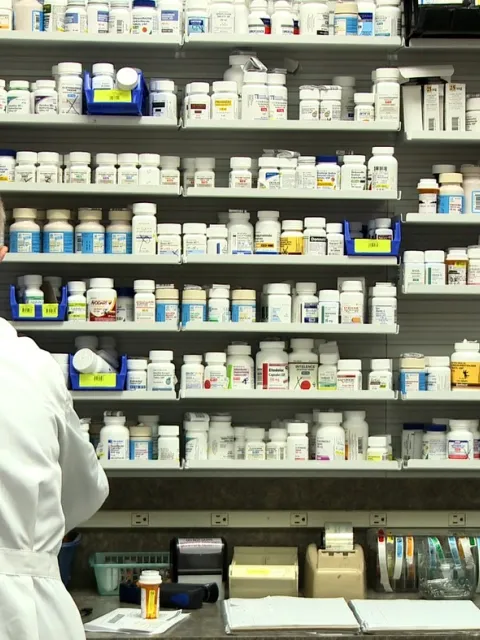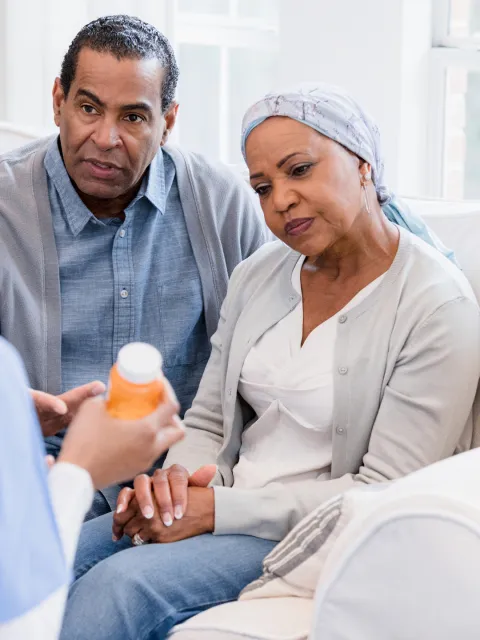Drug resistance threatens the future of cancer care: what can be done?

As a physician with a background in internal medicine, I have seen first-hand the devastating impact of cancer, but also the remarkable strides made in our ability to treat this disease. Modern cancer care can be traced back to the discovery of general anaesthesia in the mid-19th century, setting off a “golden age” of surgical innovation. This breakthrough was joined by radiotherapy in 1896. Then, with the introduction of chemotherapy drugs in the 1940s, alongside the more recent targeted therapies, another huge leap forward was made. To this day, surgery, radiotherapy and medicines remain the pillars of cancer care.
However, the significant and growing threat of antibiotic resistance is severely undermining our ability to treat cancer. Cancer patients are more susceptible to infections due to the lowering of their immune defences, while surgery, radiotherapy and chemotherapy put the immune system under immense pressure. As many as one in five cancer patients undergoing treatment are hospitalised due to infections. Antibiotics remain their main line of defence but, unless urgent action is taken, our time with these drugs could come to an end.
The emergence of antibiotic resistance threatens not only our ability to treat infections associated with cancer care, but also the very types of cancer care treatments available. We have already reached a point at which the risks of contracting resistant infections following surgery may threaten outcomes for patients, undermining advances in cancer treatment. Between 39% and 51% of bacteria causing surgical site infections and 27% causing infections after chemotherapy are now resistant to commonly used antibiotics.
There is also data to suggest that, compared to the general population of patients, cancer patients are more likely to become infected by drug-resistant bacteria. In addition, cancer patients have a higher risk of receiving inadequate antibiotic therapy for the treatment of resistant infections. For example, more than two-thirds of cancer deaths occur in low- and middle-income countries, where there is less access to effective antibiotics and a higher burden of drug resistance.
Worryingly, while new drugs have been made available, the pace of development has not kept up with the pace of resistance, as most pharmaceutical companies are no longer working on new antibiotics. Half of all antibiotics used today were discovered during the 1950s. Since that time, the discovery and development of antibiotics have become more complex, time-consuming and expensive. Even when new antibiotics are made available, they rarely target priority drug-resistant bacteria and are only registered for use in a small number of countries.
It is clear that a broad coalition working across sectors will be required to address the challenge of antibiotic resistance, including the significant threat it poses to cancer treatment outcomes. Given the serious implications of antibiotic resistance for cancer patients, what role can the cancer care community play in these efforts?
Advocate for better diagnostics
In a recent UK-based survey, published by the Longitude Prize, 60% of polled oncologists agreed that labs take too long to accurately diagnose bacterial infections, especially when treating kidney, prostate and bladder cancer. The study rightly points out that, to effectively combat the resistant bacteria that exist today while reducing the development of new resistant pathogens, we must provide better tools for doctors so they can prescribe the right antibiotics.
Better diagnostics also mean better data on the emergence and spread of antibiotic resistance. Improving our ability to track the worldwide emergence of drug resistance is critical for developing effective responses. The cancer care community, working on the frontlines of the battle against deadly bacterial infections, are uniquely placed to advocate for better resourcing for rapid diagnostic testing.
Shape improved infection prevention and control
Slowing the spread of antibiotic-resistant infections requires strengthening infection prevention and control. Healthcare professionals and researchers involved in cancer care have an important role to play in shaping clinical guidelines and practice in the context of cancer treatments.
Call for urgent action to prioritise the development of new antibiotics
This World Antimicrobial Awareness Week is an opportunity to reflect on the hard-fought gains in treating cancer. It is also a moment to call attention to the need for collective action to address drug resistance and ensure these gains aren’t reversed. We already know the drug-resistant microbes we are up against and what it will take to tackle them. But this work can only be done together. Governments, the private sector, researchers and especially the cancer care community all have an important role to play.
It is urgent that oncology professionals, cancer advocates, programme managers, patient groups and other stakeholders working in the field of cancer come together with the infectious disease community to call for greater investment in the development of new antibiotics while advocating for action to address the factors that contribute to the development and spread of antimicrobial resistance. Together, and only together, we can fight drug resistance.
Last update
Friday 28 May 2021Share this page


